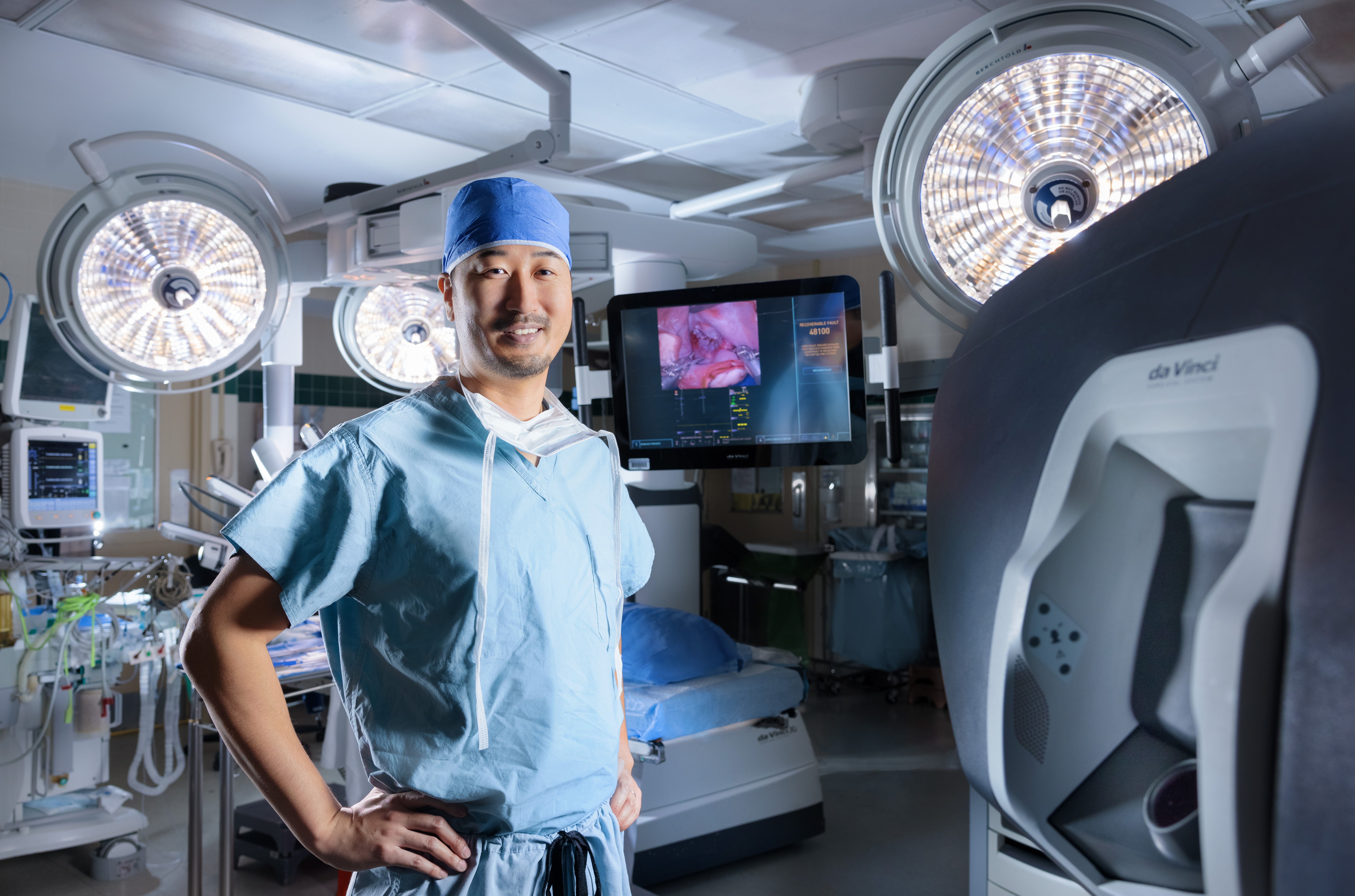
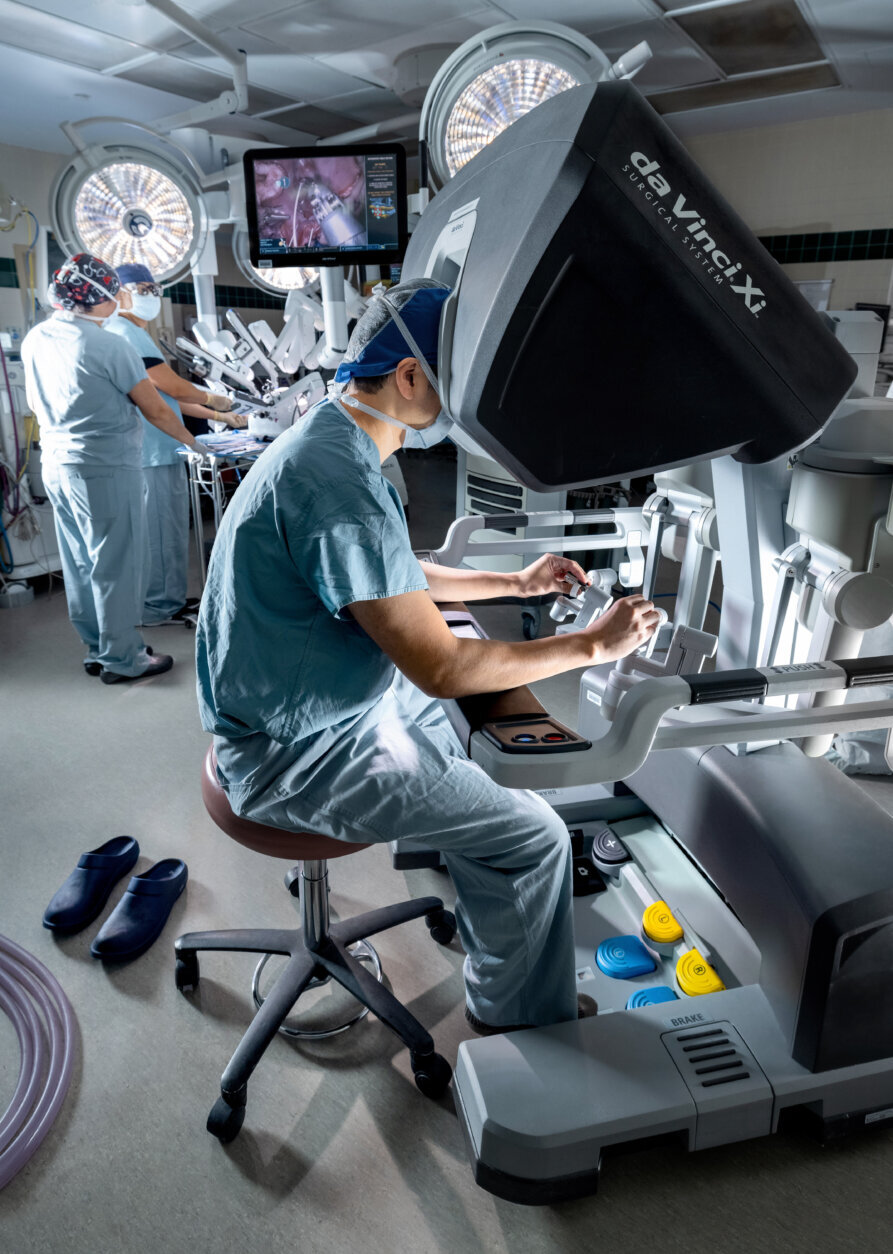
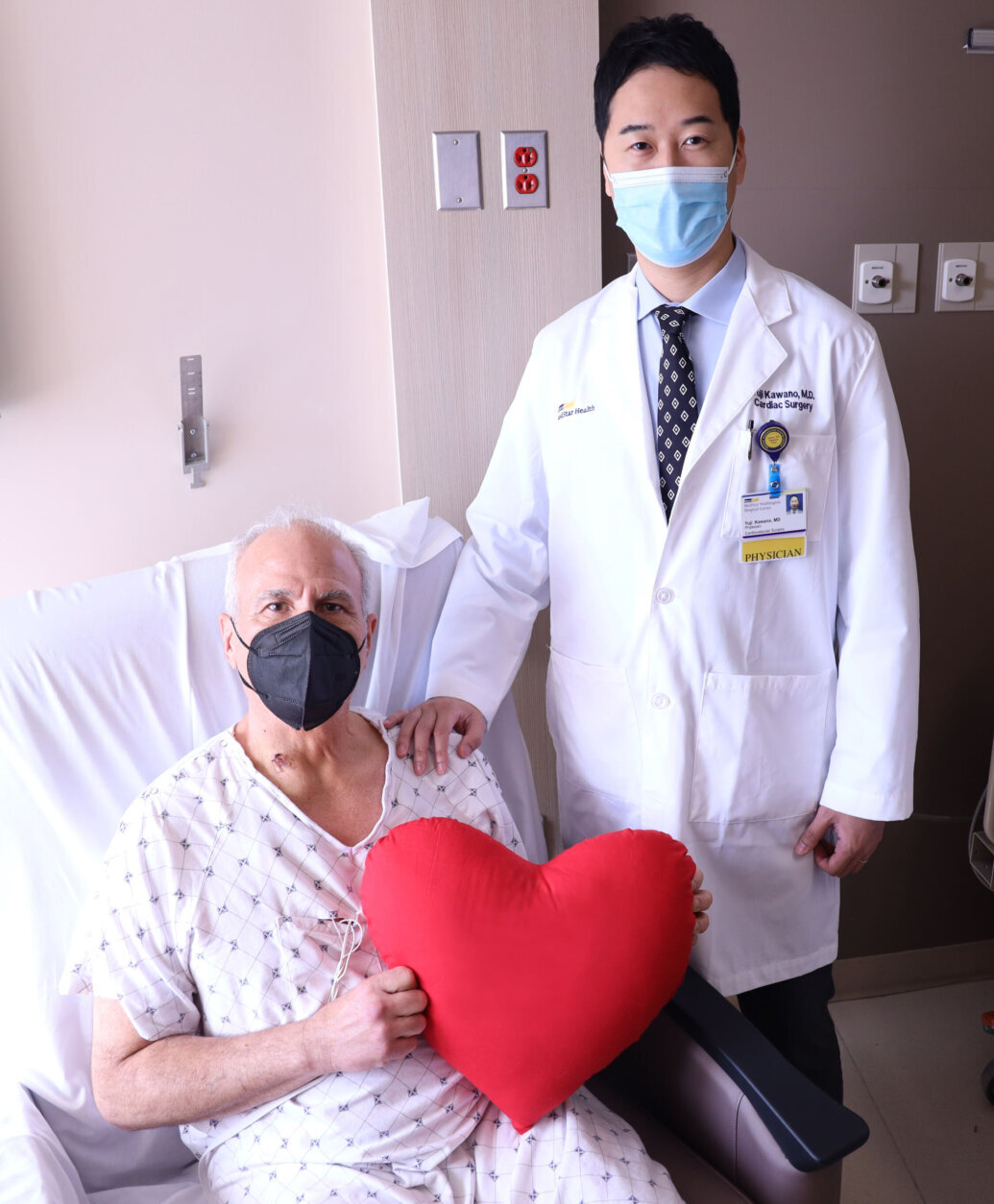
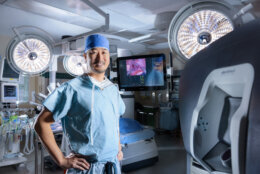
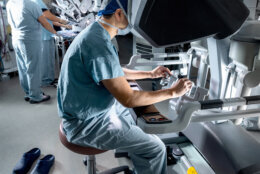
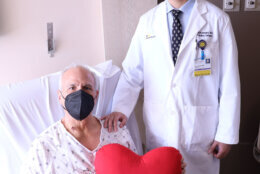
Heart surgery has traditionally involved invasive techniques, but a D.C. hospital is the first in the region to use a machine that will minimize the procedure’s impact on a patient’s body.
Doctors at MedStar Washington Hospital Center are using minimally invasive robotic heart surgery. It’s the first hospital in Southern Maryland, D.C. and Northern Virginia to have a robotic surgery program.
“I have these little holes under my right arm that are healed. And I think I had two stitches,” said Brian Cohn, 64, of Northwest D.C., who underwent the procedure last month to repair his mitral valve. The mitral valve helps keep blood flowing in the correct direction between heart chambers.
Cohn said he was out of the hospital in three days: “I maybe took two or three over-the- counter analgesics over the next week for sleep, but other than that, I was not in pain.”
Dr. Yuji Kawano, who leads the program at MedStar Washington Hospital Center, performed Cohn’s surgery.
He said the robotic method results in shorter hospital stays after surgery and recoveries in weeks versus months, with less risk to the patient. It reduces the odds of post-surgical complications such as stroke, infection and blood loss.
“The huge benefit for patients is that they don’t have to worry about the healing in the chest, the bone. Actually, there’s no major restrictions after surgery,” Kawano said. “When they go home, they can go straight back to their life. It’s just amazing.”
Kawano said there’s a huge amount of data that shows robotic surgery is the safest approach for heart surgery. He has performed over 200 robotic heart procedures and over 2,000 heart and vascular surgeries.
“I believe in this robotic approach because I think it’s the safest for the patients,” Kawano said.
The da Vinci system for robotic surgery includes the use of a high-definition 3D camera and robotic instruments with multiple joints at the tip. Those jointed tips hold various instruments that allow for more precise work through small incisions.
“Basically, it has been really hard for surgeons to handle very precise work in the heart through these small holes without robotic technologies,” Kawano said.
Cohn described a video of a surgeon using the da Vinci system to sew the skin of a grape back on with amazement. He says he’s happy with the outcome of his own surgery.
“I’m doing very well. I am working myself back to full strength. It’s a day-by-day thing. But having gone through open-heart surgery, I feel like I’m light-years ahead of where I would be had I not done the robotic surgery with Dr. Kawano,” Cohn said.
Coincidentally, Cohn has a great interest in robotics, artificial intelligence and supercomputing. In his 20s, he worked on Wall Street financing biotech and high-tech companies.
“It is kind of an interesting circle of events that some of the technology that I may have peripherally been involved in has come back to help change my life,” he said. “My valve repair now, the numbers statistically are that it will probably outlive my normal life expectancy.”








